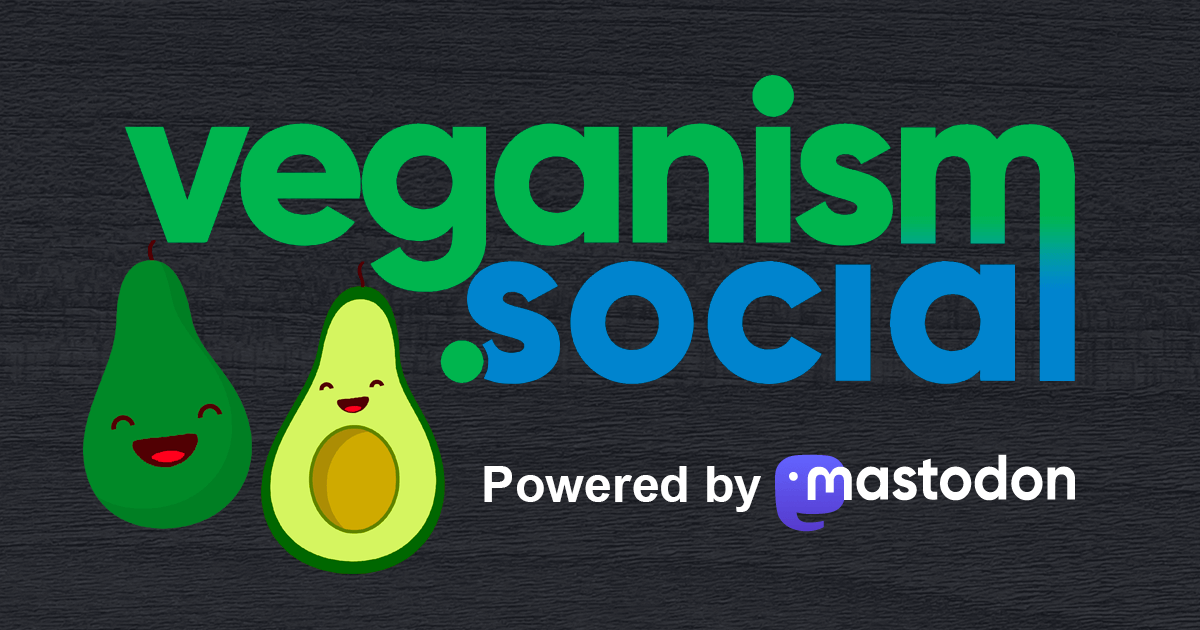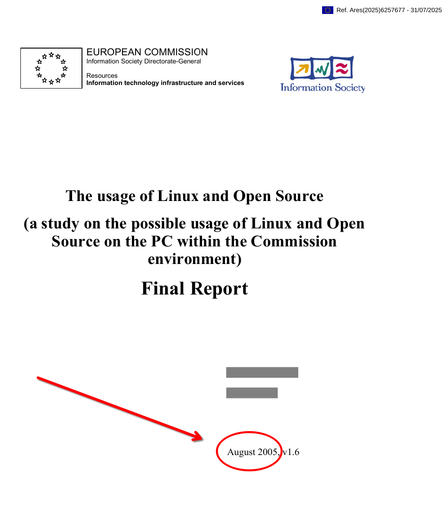#eu_os
One should do another request for all information that the public sector holds and deems relevant for the #EU_OS project. Why is this wealth of information hidden in some archives? Glad at least this one is public now.
Reminds us also of this other request that was not successful:
A reminder that EU_OS is a soft-fork of IBM's Fedora Linux, the free upstream to IBM's CentOS and Red Hat Linux, which are all under U.S. Jurisdiction.
If you want true digital sovereignty, you should pick an operating system that is either a hard-fork, no longer following an upstream distribution, or an independent distribution build from scratch, either of which should be outside U.S. Jurisdiction.
https://codeberg.org/Linux-Is-Best/Outside_US_Jurisdiction/src/branch/main/Operating_System.md
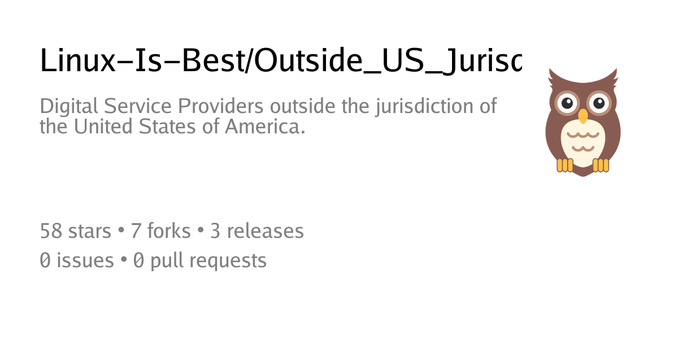
Thanks to our network of supporters, #EU_OS benefits from early access to a study from the Commission @EC_DIGIT on the in-house use of #Linux on the workspace. It is from 2005 and was revealed through an request for access to documents. Stay tuned and follow #EU_OS as we will publish the report on https://eu-os.eu in the next days and analyse which aspects apply still in 2025.
3/3 Thanks to the open source communities who helped and developed to the benefit of #EU_OS!
1) #foreman integration with #bootc facts export also for Fedora: https://copr.fedorainfracloud.org/coprs/rriemann/eu-os/package/bootc/
2) #bluebuild improves local deployment of OCI containers for better development https://github.com/blue-build/cli/pull/448
3) #foreman investigation of issues with OCI registry receiving large containers (ours is about 9GiB) https://projects.theforeman.org/issues/38649
We got a #Matrix channel for developers at #eu-os-dev:kde.org Come over and say hi!
2/3 Topics #EU_OS needs help with:
1) What is the best way to backup user data for Linux EU OS users? https://gitlab.com/eu-os/eu-os.gitlab.io/-/issues/46 #borgbackup #btrfsbk #btrfs #nextcloud
2) How can unattended deployment with #foreman look like during pilot stage (thus without reconfiguring the network/DHCP yet)? https://gitlab.com/eu-os/eu-os.gitlab.io/-/issues/39 #foreman
3) How can a modern VPN provide extra security for people in home offices or on business trips? https://gitlab.com/eu-os/eu-os.gitlab.io/-/issues/47 #tailscale #headscale #rosenpass #wireguard #openvpn

The work on #EU_OS continues. In the last days, the Proof-of-Concept pages at https://eu-os.eu/poc/ have received a few updates on provisioning, branding and thoughts on user data backups. Open questions and issues are listed at https://gitlab.com/eu-os/eu-os.gitlab.io/-/issues
Please lend us your helping hand, reshare and spread the word
!
1/3
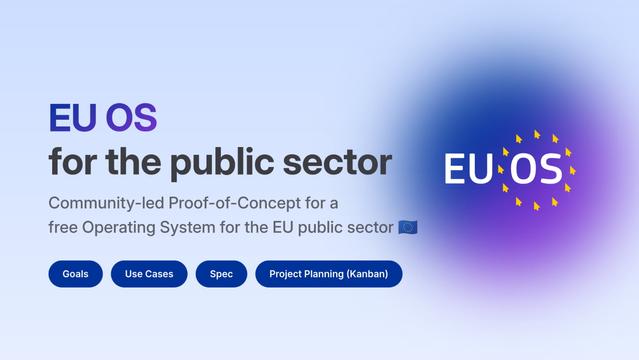
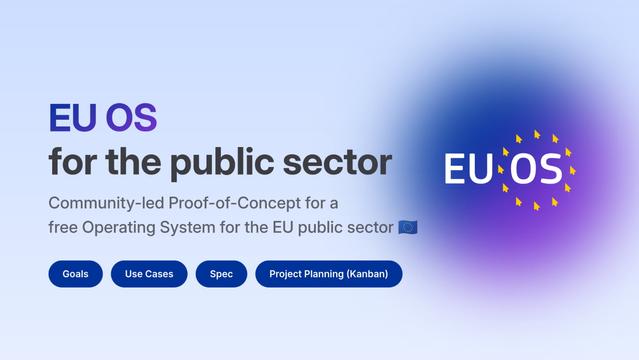
2/2 "This means these companies’ sensitive business information, everything from strategy plans to daily operations, relies on infrastructure controlled outside of Europe. This creates serious risks for European businesses and Europe as a whole."
That's why #EU_OS proposes to have an #opensource operating system to boost #DigitalSovereignty. It does not help only the public sector, but also the private sector. Follow and reshare to support this ambition!
"#Proton’s latest analysis reveals the extent of Europe’s dependence on US-based tech, and the results are alarming. We found that 74% of Europe’s publicly listed companies rely on US-based tech like #Google and #Microsoft." 1/2
Working on branding and theming of the EU OS booting process: ongoing!
During the #UN #opensourceweek in June 2025 in their New York HQ, Adriana Groh from the @sovtechfund talked about open digital infrastructure and digital sovereignty . @rriemann , who attended for #EU_OS, was in the crowd – and coded meanwhile on #EU_OS.
The s̶k̶y̶ UN is the limit for our collaboration: why not also #UN_OS? Robert had the chance to exchange contacts with the digital transformation officer there.
Source: https://www.linkedin.com/posts/adrianagroh_unosw-activity-7346877759652020225-73c3
While FOSS does offer a great deal of flexibility, there are still practical concerns around jurisdiction, especially when it comes to legal matters, security audits, and the involvement of major corporations. Even though the software itself is open and can be modified, the infrastructure and support around it — such as funding, legal protections, or compliance — can still be influenced by where the project is based or the entities involved. Moving to a more independent, EU-based model could help mitigate some of those risks and offer more sovereignty in the long run.
Furthermore, the concern remains that the U.S. government could potentially order a company to introduce a hidden backdoor into the software, and the corporation might not be free — or even able — to disclose this information. This is a serious issue, especially as political pressures grow. In a broader sense, the U.S. is increasingly resembling more authoritarian regimes like Russia or China when it comes to digital policies, where control over software and data is prioritized over privacy or transparency.
Even though FOSS allows you to examine the code, the reality is that no one can continuously monitor the entire system at all times. The complexities of modern operating systems make it incredibly difficult to scrutinize every line of code, especially as it evolves. This is why reducing dependency on American corporations and jurisdiction could be an essential step toward ensuring true independence and security.
Relying on America's IBM's Fedora Linux, CentOS Linux, and Red Hat Linux as upstream sources does not address many of the challenges that an independent, EU-based OS could solve.
It would be beneficial if your concept either became independent (via a hard fork), thus removing reliance on American businesses and jurisdiction, or if you developed a completely independent OS from scratch.
The #US imposes 30% of #UStariffs to the #EuropeanUnion. According to Politico, the Commission is ready to retaliate. EU OS believes that a European response with Tariffs on US BigTech services (or all services that face trade deficits) would make so much more sense if the EU had alternatives for those in place. This is why #EU_OS, #EuroStack and #DigitalSovereignty is important. It offers more leverage.
https://www.politico.eu/article/donald-trump-hits-eu-with-sweeping-30-percent-tariffs/
2/2 EU OS says: Let's make this the last struggle to adopt an expensive, proprietary system with unclear dataprotection and security implications. The next migration should be towards #EU_OS!
Learn more at: https://eu-os.eu

For a list of true Linux distros, developed and designed in Europe, and not dependent on America's Fedora Linux, you have a few to choose from, including Mageia (France, Europe), which like Fedora works well with RPM packages and Flatpak
https://codeberg.org/Linux-Is-Best/Outside_Us_Jurisdiction/src/branch/main/Operating_System.md
#Eu_OS #EuOS #endof10 #DigitalSovereignty #GermanStack #EuroStack #opensourceweek2025
@eu_os@eupolicy.social
For a list of true Linux distros, developed and designed in Europe, and not dependent on America's Fedora Linux, you have a few to choose from, including Mageia (France, Europe), which like Fedora works well with RPM packages and Flatpak
https://codeberg.org/Linux-Is-Best/Outside_Us_Jurisdiction/src/branch/main/Operating_System.md
#Eu_OS #EuOS #endof10 #DigitalSovereignty #GermanStack #EuroStack #opensourceweek2025
RE: https://eupolicy.social/users/eu_os/statuses/114693542131348368
